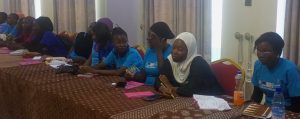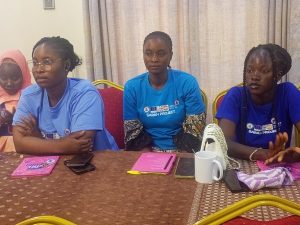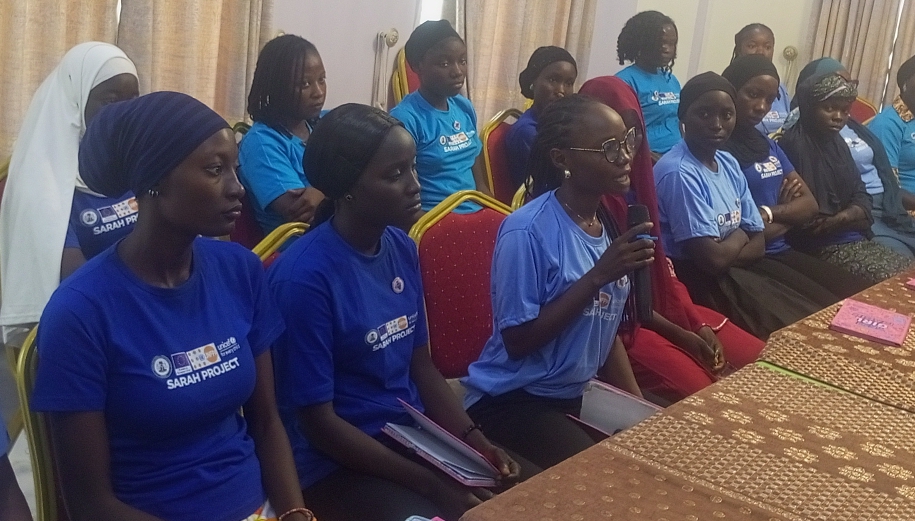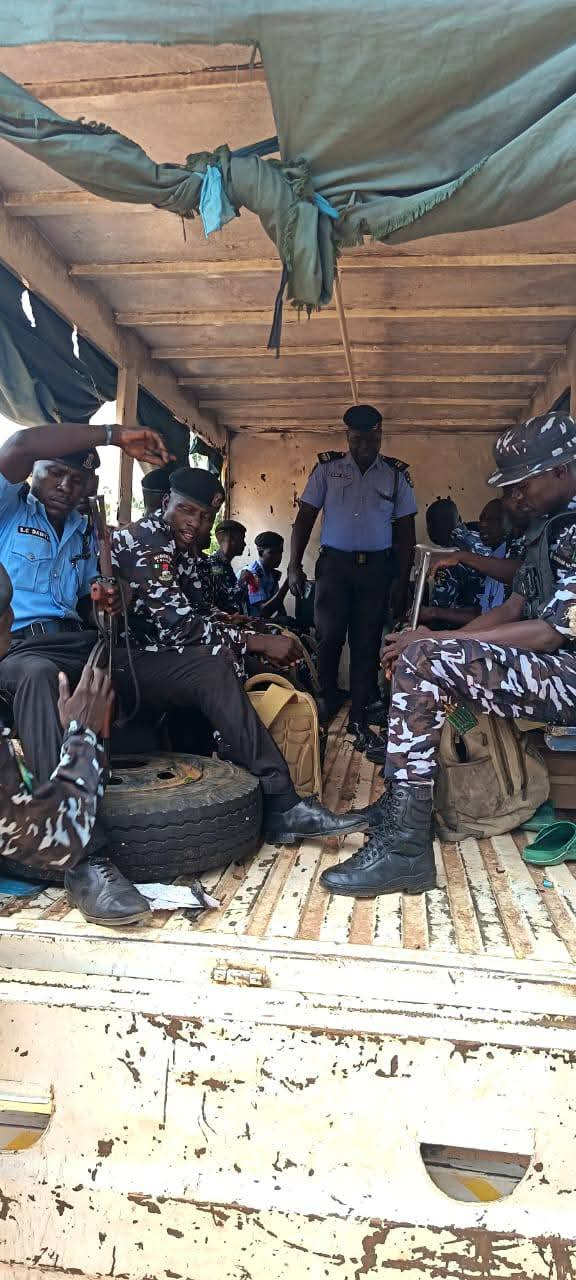32 Adolescent Girls Empowered on Menstrual Hygien in Adamawa
 Thirty-two adolescent girls from across 21 local government areas in Adamawa State have been empowered with on menstrual hygiene management and the production of reusable sanitary pads.
Thirty-two adolescent girls from across 21 local government areas in Adamawa State have been empowered with on menstrual hygiene management and the production of reusable sanitary pads.
 The two-day capacity-building advocacy training to empower the Adolecents girls and self confidence and menstrual hygiene was organized by UNICEF and UNFPA with funding support from the European Union, in collaboration with the Adamawa State Government, as part of activities marking Adolescent Girls’ Week.
The two-day capacity-building advocacy training to empower the Adolecents girls and self confidence and menstrual hygiene was organized by UNICEF and UNFPA with funding support from the European Union, in collaboration with the Adamawa State Government, as part of activities marking Adolescent Girls’ Week.
On the first day of the training, participants engaged in a “girl-to-girl” podcast session, encouraging them to speak out with boldness and strength. The program also focused on menstrual hygiene, creating safe spaces for adolescents, and equipping 219 nurses with skills to support adolescent girls’ physical and mental well-being in these safe spaces.
Eglar Dauda Gah, Adolescents Team Lead for Adamawa State, highlighted the importance of empowering young girls with practical skills such as producing reusable sanitary pads.
She stressed that safe spaces guarantee confidentiality and mental safety, adding that empowerment initiatives like this can help reduce crime rates by providing meaningful engagement for young people.
UNICEF Health Officer, Olusheyi Olusunde, explained that the training is part of the SARAH Initiative (Strengthening Access to Reproductive and Adolescent Health), a four-year program funded by the EU and implemented by UNICEF and UNFPA in Adamawa, Kwara, and Sokoto States.
“SARAH aims to provide targeted support for adolescent girls and young women, focusing on reproductive health, mental health, and menstrual hygiene,” Olusunde stated.
As part of the initiative, five girls from each of the 21 LGAs will receive training on reusable pad production to reduce unsafe menstrual practices, such as using leaves, rags, or tissue paper.
Sunday Stephen from the Adamawa State Primary Health Care Development Agency noted that “one-stop shop” care centers have been established in five LGAs to respond to the needs of adolescent girls, including pregnant teens aged 15 to 19. He added that 309 health workers have been trained to provide specialized care for adolescents.
UNICEF MNCH Health Manager, Martin Alex Dohlsen, emphasized the importance of creating a supportive environment for adolescents as they transition from childhood to adulthood.
“Adolescents need spaces where their voices are heard and their challenges are addressed. This is a critical stage that requires attention and care,” Dohlsen said.
EU SARAH Project Manager in Adamawa, Ahmed Yero, also noted that empowering adolescent girls gives them a platform to become role models and change agents within their communities.
The SARAH initiative continues to build adolescent-friendly health systems across the three participating states, ensuring young girls can access safe spaces, quality care, and opportunities to thrive.



